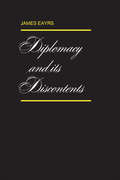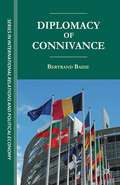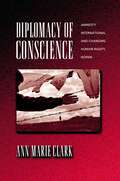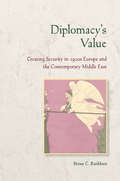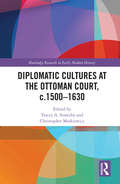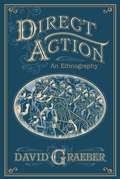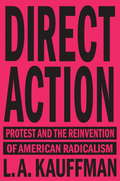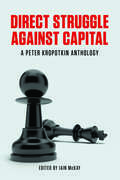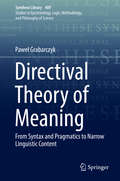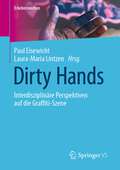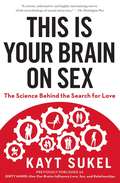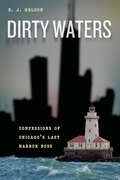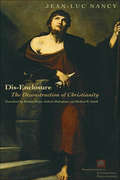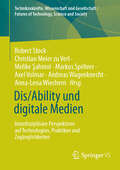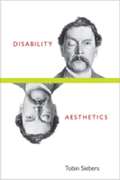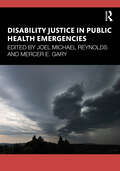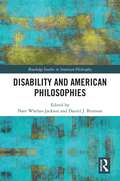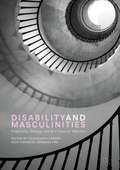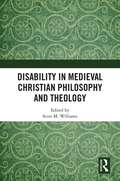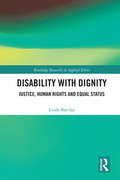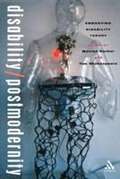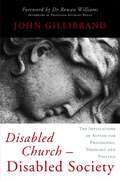- Table View
- List View
Diplomacy and its Discontents
by James EayrsJames Eayrs is a keen and articulate observer of international politics. His incisive critiques of the moral turpitude and inefficiency of the diplomatic profession in Right and Wrong in Foreign Policy and Fate and Will in Foreign Policy provoked unflattering attention and attempts at rebuttal by the statesmen and politicians who shape our foreign policy. This volume makes these two controversial studies available once more, bringing them up to date with discussions of the 'October crisis' in Quebec and other recent events, and incorporating the author's selection of his recent writings on the irrelevance, or deliquescence, of modern diplomacy. All three parts of the book hold to a single theme – the decay of diplomatic method. In the incisive prose characteristic of all Eayrs' writing, these discourses present a convincing view of the tragi-comedy of foreign affairs. The general reader and the student of politics and international affairs will find this a perceptive analysis of statecraft, full of insights into the workings of government.
Diplomacy of Connivance (The Sciences Po Series in International Relations and Political Economy)
by B. BadieThe status quo of the modern world order, a diplomatic entente best characterized as "connivance diplomacy," is limited in its performances, defensive of its privileges, midway between competition and cooperation. It is examined here through its history, its functions, and its failures.
Diplomacy of Conscience: Amnesty International and Changing Human Rights Norms
by Ann Marie ClarkA small group founded Amnesty International in 1961 to translate human rights principles into action. Diplomacy of Conscience provides a rich account of how the organization pioneered a combination of popular pressure and expert knowledge to advance global human rights. To an extent unmatched by predecessors and copied by successors, Amnesty International has employed worldwide publicity campaigns based on fact-finding and moral pressure to urge governments to improve human rights practices. Less well known is Amnesty International's significant impact on international law. It has helped forge the international community's repertoire of official responses to the most severe human rights violations, supplementing moral concern with expertise and conceptual vision. Diplomacy of Conscience traces Amnesty International's efforts to strengthen both popular human rights awareness and international law against torture, disappearances, and political killings. Drawing on primary interviews and archival research, Ann Marie Clark posits that Amnesty International's strenuously cultivated objectivity gave the group political independence and allowed it to be critical of all governments violating human rights. Its capacity to investigate abuses and interpret them according to international standards helped it foster consistency and coherence in new human rights law. Generalizing from this study, Clark builds a theory of the autonomous role of nongovernmental actors in the emergence of international norms pitting moral imperatives against state sovereignty. Her work is of substantial historical and theoretical relevance to those interested in how norms take shape in international society, as well as anyone studying the increasing visibility of nongovernmental organizations on the international scene.
Diplomacy's Value: Creating Security in 1920s Europe and the Contemporary Middle East
by Brian C. RathbunWhat is the value of diplomacy? How does it affect the course of foreign affairs independent of the distribution of power and foreign policy interests? Theories of international relations too often implicitly reduce the dynamics and outcomes of diplomacy to structural factors rather than the subtle qualities of negotiation. If diplomacy is an independent effect on the conduct of world politics, it has to add value, and we have to be able to show what that value is. In Diplomacy's Value, Brian C. Rathbun sets forth a comprehensive theory of diplomacy, based on his understanding that political leaders have distinct diplomatic styles--coercive bargaining, reasoned dialogue, and pragmatic statecraft. Drawing on work in the psychology of negotiation, Rathbun explains how diplomatic styles are a function of the psychological attributes of leaders and the party coalitions they represent. The combination of these styles creates a certain spirit of negotiation that facilitates or obstructs agreement. Rathbun applies the argument to relations among France, Germany, and Great Britain during the 1920s as well as Palestinian-Israeli negotiations since the 1990s. His analysis, based on an intensive analysis of primary documents, shows how different diplomatic styles can successfully resolve apparently intractable dilemmas and equally, how they can thwart agreements that were seemingly within reach.
Diplomatic Cultures at the Ottoman Court, c.1500–1630 (Routledge Research in Early Modern History)
by Tracey A. Sowerby; Christopher MarkiewiczIn the sixteenth century, the Ottoman court in Constantinople emerged as the axial centre of early modern diplomacy in Eurasia. Diplomatic Cultures at the Ottoman Court, c.1500-1630 takes a unique approach to diplomatic relations by focusing on how diplomacy was conducted and diplomatic cultures forged at a single court: the Sublime Porte. It unites studies from the perspectives of European and non-European diplomats with analyses from the perspective of Ottoman officials involved in diplomatic practices. It focuses on a formative period for diplomatic procedure and Ottoman imperial culture by examining the introduction of resident embassies on the one hand, and on the other, changes in Ottoman policy and protocol that resulted from the territorial expansion and cultural transformations of the empire in the sixteenth century. The chapters in this volume approach the practices and processes of diplomacy at the Ottoman court with special attention to ceremonial protocol, diplomatic sociability, gift-giving, cultural exchange, information gathering, and the role of para-diplomatic actors.
Direct Action
by David GraeberAnthropologist David Graeber undertakes the first detailed ethnographic study of the global justice movement. The case study at the center of Direct Action is the organizing and events that led to the one of the most dramatic and militant mass protests in recent years--against the Summit of the Americas in Québec City. Written in a clear, accessible style (with a minimum of academic jargon), this study brings readers behind the scenes of a movement that has changed the terms of debate about world power relations. From informal conversations in coffee shops to large "spokescouncil" planning meetings and tear gas-drenched street actions, Graeber paints a vivid and fascinating picture.Along the way, he addresses matters of deep interest to anthropologists: meeting structure and process, language, symbolism and representation, the specific rituals of activist culture, and much more. Starting from the assumption that, when dealing with possibilities of global transformation and emerging political forms, a disinterested, "objective" perspective is impossible, Graeber writes as both scholar and activist. At the same time, his experiment in the application of ethnographic methods to important ongoing political events is a serious and unique contribution to the field of anthropology, as well as an inquiry into anthropology's political implications.David Graeber is an anthropologist and activist who teaches at the University of London. Active in numerous direct-action political organizations, he has written for Harper's Magazine and is the author of Fragments of an Anarchist Anthropology, Towards an Anthropological Theory of Value, and Possibilities.
Direct Action: Protest and the Reinvention of American Radicalism
by L. A. KauffmanA longtime movement insider's powerful account of the origins of today's protest movements and what they can achieve now As Americans take to the streets in record numbers to resist the presidency of Donald Trump, L.A. Kauffman’s timely, trenchant history of protest offers unique insights into how past movements have won victories in times of crisis and backlash and how they can be most effective today. This deeply researched account, twenty-five years in the making, traces the evolution of disruptive protest since the Sixties to tell a larger story about the reshaping of the American left. Kauffman, a longtime grassroots organizer, examines how movements from ACT UP to Occupy Wall Street to Black Lives Matter have used disruptive tactics to catalyze change despite long odds. Kauffman's lively and elegant history is propelled by hundreds of candid interviews conducted over a span of decades. Direct Action showcases the voices of key players in an array of movements – environmentalist, anti-nuclear, anti-apartheid, feminist, LGBTQ, anti-globalization, racial-justice, anti-war, and more – across an era when American politics shifted to the right, and a constellation of decentralized issue- and identity-based movements supplanted the older ideal of a single, unified left. Now, as protest movements again take on a central and urgent political role, Kauffman’s history offers both striking lessons for the current moment and an unparalleled overview of the landscape of recent activism. Written with nuance and humor, Direct Action is essential reading for anyone interested in understanding the protest movements of our time. Product Alert: Book will have either a neon magenta cover or a neon green cover. Color is not selectable.
Direct Democracy: The Politics of Initiative, Referendum, and Recall
by Thomas E. CroninBallot democracy, populist democracy, democracy by initiative, referendum, and recall-however one labels it-is only one hundred years old in the United States and has been in and out of fashion during that time. At the writing of this book there was a resurgence of interest in new kinds of forces trying to overturn legislative and executive fiat by direct ballot. In this book Thomas Cronin suggests why this is so, how it is working, and what should be done.
Direct Struggle Against Capital
by Peter Kropotkin Iain MckayThis is the most extensive collection of Peter Kropotkin's writings available in English. Over half the selections have been translated for the first time or salvaged from long-out-of-print pamphlets and newspapers. Both an introduction to classic texts and a recontextualization of Kropotkin from saintly philosopher to dangerous revolutionary, Direct Struggle Against Capital includes a historical introduction, biographical sketch, glossary, bibliography, and index.Peter Kropotkin was one of anarchism's most famous thinkers. His classic works include The Conquest of Bread and Mutual Aid: A Factor of Evolution.Iain McKay has edited An Anarchist FAQ (volumes one and two) and Property Is Theft: A Pierre-Joseph Proudhon Anthology.
Directival Theory of Meaning: From Syntax and Pragmatics to Narrow Linguistic Content (Synthese Library #409)
by Paweł GrabarczykThis book presents a new approach to semantics based on Kazimierz Ajdukiewicz’s Directival Theory of Meaning (DTM), which in effect reduces semantics of the analysed language to the combination of its syntax and pragmatics. The author argues that the DTM was forgotten because for many years philosophers didn’t have conceptual tools to appreciate its innovative nature, and that the theory was far ahead of its time.The book shows how a redesigned and modernised version of the DTM can deliver a new solution to the problem of defining linguistic meaning and that the theory can be understood as a new type of functional role semantics. The defining feature of the DTM is that it presents meaning as a product of constraints on the usage of words. According to the DTM meaning is not use, but the avoidance of misuse.Readers will see how the DTM was shelved for reasons that we don’t find so dramatic anymore, and how it contains enough original ideas and solutions to warrant developing it into a full-blown contemporary account. It is shown how many of the underlying ideas of the theory have been embraced later by philosophers and treated simply as brute facts about natural languages or even as new philosophical discoveries.Philosophers of language and researchers with an interest in how languages and the mind work will find this book a fascinating read.
Dirty Hands: Interdisziplinäre Perspektiven auf die Graffiti-Szene (Erlebniswelten)
by Paul Eisewicht Laura-Maria LintzenDieser Band vereint erstmals Beiträge aus verschiedenen Disziplinen (Kunst-, Rechts-, Erziehungs- und Sozialwissenschaften) zur deutschen Graffiti-Szene. Dabei verschränken sich Perspektiven von außen auf die Szene mit Sichtweisen von innen. Über die Beiträge hinweg wird dabei deutlich, wie facettenreich Graffiti als kulturelles Phänomen ist und wie anschlussreich methodische und theoretische Perspektiven der Kultur- und Sozialwissenschaften daran sind. Abseits gesellschaftlicher Typisierungen, Dramatisierungen, Missverständnisse und Mythen werden dabei der Szenealltag, die Szenegeschichte und die Handlungsprobleme der Writer beleuchtet.
Dirty Minds: How Our Brains Influence Love, Sex, and Relationships
by Kayt SukelPhilosophers, theologians, artists, and boy bands have waxed poetic about the nature of love for centuries. But what does the brain have to say about the way we carry our hearts? In the wake of a divorce, science writer and single mother Kayt Sukel made herself a guinea pig in the labs of some unusual love experts to find out. In each chapter of this edgy romp through the romantic brain, Sukel looks at a different aspect of love above the belt. What in your brain makes you love someone--or simply lust after them? (And is there really a difference?) Why do good girls like bad boys? Is monogamy practical? How thin is that line between love and hate? Do mothers have a stronger bond with their children than their fathers do? How do our childhood experiences affect our emotional control? Should you be taking an oxytocin supplement to improve your luck in love? Who is most at risk for love addiction? In her search for truth, Sukel also has an fMRI during orgasm, ponders a cure for heartbreak, and samples a pheromone spray called Boarmate. As science allows us a more focused examination on the intricate dance between the brain and our environments, we can use it to shed new light on humanity's oldest question: What is love and why does it torture, delight, and transform us so? Fiercely honest and wonderfully funny, Sukel can offer no simple solutions for the curveballs love throws our way. But after reading this gimlet-eyed look at love, sex, and the brain, you'll never look at romance the same way again.
Dirty Waters: Confessions of Chicago's Last Harbor Boss
by R. J. NelsonIn 1987, the city of Chicago hired a former radical college chaplain to clean up rampant corruption on the waterfront. R. J. Nelson thought he was used to the darker side of the law--he had been followed by federal agents and wiretapped due to his antiwar stances in the sixties--but nothing could prepare him for the wretched bog that constituted the world of a Harbor Boss. Director of Harbors and Marine Services was a position so mired in corruption that its previous four directors ended up in federal prison. Nelson inherited angry constituents, prying journalists, shell-shocked employees, and a tobacco-stained office still bearing a busted door that had been smashed in by the FBI. Undeterred, Nelson made it his personal mission to become a "pneumacrat," a public servant who, for the common good, always follows the spirit--if not always the letter--of the law. Dirty Waters is a wry, no-holds-barred memoir of Nelson's time controlling some of the city's most beautiful spots while facing some of its ugliest traditions. A guide like no other, Nelson takes us through Chicago's beloved "blue spaces" and deep into the city's political morass. He reveals the different moralities underlining three mayoral administrations, from Harold Washington to Richard M. Daley, and navigates us through the gritty mechanisms of the Chicago machine. He also deciphers the sometimes insular world of boaters and their fraught relationship with their land-based neighbors. Ultimately, Dirty Waters is a tale of morality, of what it takes to be a force for good in the world and what struggles come from trying to stay ethically afloat in a sea of corruption.
Dis-Enclosure: The Deconstruction of Christianity (Perspectives in Continental Philosophy)
by Bettina Bergo Jean-Luc Nancy Michael B. Smith Gabriel MalenfantThis book is a profound and eagerly anticipated investigation into what is left of a monotheistic religious spirit—notably, a minimalist faith that is neither confessional nor credulous. Articulating this faith as works and as an objectless hope, Nancy deconstructs Christianity in search of the historical and reflective conditions that provided its initial energy. Working through Blanchot and Nietzsche, re-reading Heidegger and Derrida, Nancy turns to the Epistle of Saint James rather than those of Saint Paul, discerning in it the primitive essence of Christianity as hope. The “religion that provided the exit from religion,” as he terms Christianity, consists in the announcement of an end. It is the announcement that counts, however, rather than any finality. In this announcement there is a proximity to others and to what was once called parousia. But parousia is no longer presence; it is no longer the return of the Messiah. Rather, it is what is near us and does not cease to open and to close, a presence deferred yet imminent. In a demystified age where we are left with a vision of a self-enclosed world—in which humans are no longer mortals facing an immortal being, but entities whose lives are accompanied by the time of their own decline—parousia stands as a question. Can we venture the risk of a decentered perspective, such that the meaning of the world can be found both inside and outside, within and without our so-immanent world? The deconstruction of Christianity that Nancy proposes is neither a game nor a strategy. It is an invitation to imagine a strange faith that enacts the inadequation of life to itself. Our lives overflow the self-contained boundaries of their biological and sociological interpretations. Out of this excess, wells up a fragile, overlooked meaning that is beyond both confessionalism and humanism.
Dis/Ability und digitale Medien: Interdisziplinäre Perspektiven auf Technologien, Praktiken und Zugänglichkeiten (Technikzukünfte, Wissenschaft und Gesellschaft / Futures of Technology, Science and Society)
by Markus Spöhrer Christian Meier zu Verl Robert Stock Melike Şahinol Andreas Wagenknecht Axel Volmar Anna-Lena WiechernDer Sammelband analysiert das Verhältnis von digitalen Medien und Dis/Ability aus einer interdisziplinären Perspektive. Dis/Ability wird dabei als subjektives wie soziales und geschichtliches Phänomen verstanden, das aus den wechselseitigen Relationen behinderter Körper, Sinneserfahrungen und Technologien entsteht. Die Beiträge untersuchen aktuelle und historische Fallbeispiele im Kontext technologischer Innovationen, aktivistischer Praktiken und digitaler Zugänglichkeitsfragen.
Disability Aesthetics
by Tobin SiebersDisability Aesthetics ambitiously redefines both 'disability' and 'aesthetics,' showing us that disability is central not only to modern art but also to the way we apprehend (and interact with) bodies and buildings. Along the way, Tobin Siebers revisits the beautiful and the sublime, 'degenerate' art and 'disqualified' bodies, culture wars and condemned neighborhoods, the art of Marc Quinn and the fiction of Junot Díaz---and much, much more. Disability Aesthetics is a stunning achievement, a must-read for anyone interested in how to understand the world we half create and half perceive." ---Michael Bérubé, Paterno Family Professor in Literature, Pennsylvania State University. "Rich with examples of the disabled body in both historical and modern art, Tobin Siebers's new book explores how disability problematizes commonly accepted ideas about aesthetics and beauty. For Siebers, disability is not a pejorative condition as much as it is a form of embodied difference. He is as comfortable discussing the Venus de Milo as he is discussing Andy Warhol. Disability Aesthetics is a prescient and much-needed contribution to visual & critical studies." ---Joseph Grigely, Professor of Visual and Critical Studies, The School of the Art Institute of Chicago. Disability Aesthetics is the first attempt to theorize the representation of disability in modern art and visual culture. It claims that the modern in art is perceived as disability, and that disability is evolving into an aesthetic value in itself. It argues that the essential arguments at the heart of the American culture wars in the late twentieth century involved the rejection of disability both by targeting certain artworks as "sick" and by characterizing these artworks as representative of a sick culture. The book also tracks the seminal role of National Socialism in perceiving the powerful connection between modern art and disability. It probes a variety of central aesthetic questions, producing a new understanding of art vandalism, an argument about the centrality of wounded bodies to global communication, and a systematic reading of the use put to aesthetics to justify the oppression of disabled people. In this richly illustrated and accessibly written book, Tobin Siebers masterfully demonstrates the crucial roles that the disabled mind and disabled body have played in the evolution of modern aesthetics, unveiling disability as a unique resource discovered by modern art and then embraced by it as a defining concept. Tobin Siebers is V. L. Parrington Collegiate Professor of English Language and Literature and Art and Design at the University of Michigan. His many books include Disability Theory and The Subject and Other Subjects: On Ethical, Aesthetic, and Political Identity. A volume in the series Corporealities: Discourses of Disability.
Disability Justice in Public Health Emergencies
by Joel Michael Reynolds Mercer E. GaryDisability Justice in Public Health Emergencies is the first book to highlight contributions from critical disability scholarship to the fields of public health ethics and disaster ethics. It takes up such contributions with the aim of charting a path forward for clinicians, bioethicists, public health experts, and anyone involved in emergency planning to better care for disabled people—and thereby for all people—in the future. Across 11 chapters, the contributors detail how existing public health emergency responses have failed and still fail to address the multi-faceted needs of disabled people. They analyze complications in the context of epidemic and pandemic disease and emphasize that vulnerabilities imposed upon disabled people track and foster patterns of racial and class domination.The central claim of the volume is that the ethical and political insights of disability theory and activism provide key resources for equitable disaster planning for all. The volume builds upon the existing efforts of disability communities to articulate emergency planning priorities and response measures that take into account the large body of qualitative and quantitative research on disabled people’s health, needs, and experiences. It is only by listening to disabled people’s voices that we will all fare better in future public health emergencies.The book will be of interest to scholars and graduate students working in bioethics, disability studies, public health policy, medical sociology, and the medical humanities.
Disability and American Philosophies (Routledge Studies in American Philosophy)
by Nate Whelan-JacksonGiven basic commitments to philosophize from lived experience and a shared underlying meliorist impulse, American philosophical traditions seem well-suited to develop nascent philosophical engagement with disability studies. To date, however, there have been few efforts to facilitate research at the intersections of American philosophy and disability studies. This volume of essays seeks to offer some directions for propelling this inquiry. Scholars working in pragmatist and other American traditions consider intersections between American philosophy and work in disability studies. Consisting of three broader sections, one set of essays considers how American philosophies from contemporary Mexican philosophy to classical American pragmatism inform descriptions of disability and efforts at liberation. The next offer accounts of how American philosophies disclose alternative conceptions of epistemic and ethical issues surrounding disability. Finally, a section considers "living issues" of disability, including essays on parenting, immigration policy, and art education. Throughout, these works provide direction and orientation for further investigation at the intersection of American philosophies and disability studies.
Disability and Masculinities
by Barbara Pini Cassandra Loeser Vicki CrowleyIn recent years, attending to diversity in the cultivation of embodied identity has been given additional impetus as a result of intersectionality theory. Despite this, a key gap remains in terms of knowledge about masculinity and disability. This book addresses this lacuna through ten empirical chapters organised through the inter-related themes of corporeality, pedagogy and the critique of otherness. Each of the chapters positions the subject of masculinity and disability as a site of cultural pedagogy by affirming different ways of knowing of masculinity beyond dominant ideologies that normalise a particular masculine body and relegate disabled masculinities to the position of abnormal 'Other'. Part One focuses on pedagogy. Through the materialities of 'medicalized colonialism', imprimaturs of 'relational genealogies', 'compounding differences' and an analytical exposition of some of the neo-colonial conditions of the Global South within spatially-considered places of the Global North, Chapter 1 examines the denial of human rights to the Indigenous Anishinaabe community of Shoal Lake 40 in Canada. Chapter 1 theorises masculine corporeality in terms that take seriously First Nations', national and transnational body politics seriously. Chapter 2 examines the ways that movement and affect serve as a form of pedagogy for boys with autism spectrum in schools. Part Two's focus on corporeality includes an examination of the nexus of disability and diagnosis in the context of transgender men's experiences of mental health, and a discussion of the ways that intersex individuals who identify as men and have experienced 'genital normalising surgery' actively negotiate pluralised masculinities. The focus on media in Part Three encompasses a study of the mis-interpellation of the disabled male subject in Australian male literature, research on the discursive strategies utilised in media representations of disabled veterans in Turkey, and an analysis of the political implications of depictions of masculinity, disability and sexualities in a variety television program. Part Four's theme of self-stylisation takes up the questions of men's reconstructions of masculinity in light of Lyme Disease, the potential pleasures of heterosexuality for young men with a hearing disability in the realm of Australian-Rules Football, and the diverse ways that disabled men negotiate patriarchal masculinity in intimate relationships.
Disability and Political Theory
by Nancy J. Hirschmann Barbara ArneilThough disability scholarship has been robust in history, philosophy, English, and sociology for decades, political theory and political science more generally have been slow to catch up. This groundbreaking volume presents the first full-length book on political theory approaches to disability issues. Barbara Arneil and Nancy J. Hirschmann bring together some of the leading scholars in political theory to provide a historical analysis of disability through the works of canonical figures, ranging from Hobbes and Locke to Kant, Rawls and Arendt, as well as an analysis of disability in contemporary political theory, examining key concepts, such as freedom, power and justice. Disability and Political Theory introduces a new disciplinary framework to disability studies, and provides a comprehensive introduction to a new topic of political theory.
Disability and the Good Human Life
by Jerome E. Bickenbach Franziska Felder Barbara Schmitz Jerome E. Bickenbach Franziska FelderThis collection of original essays, from both established scholars and newcomers, takes up a recent debate in philosophy, sociology, and disability studies on whether disability is intrinsically a harm that lowers a person's quality of life. While this is a new question in disability scholarship, it also touches on one of the oldest philosophical questions: what is the good human life? Historically, philosophers have not been interested in the topic of disability, and when they are it is usually only in relation to questions such as euthanasia, abortion, or the moral status of disabled people. Consequently disability has been either ignored by moral and political philosophers or simply equated with a bad human life, a life not worth living. This collection takes up the challenge that disability poses to basic questions of political philosophy and bioethics, among others, by focusing on fundamental issues and practical implications of the relationship between disability and the good human life.
Disability in Medieval Christian Philosophy and Theology
by Scott M. WilliamsThis book uses the tools of analytic philosophy and close readings of medieval Christian philosophical and theological texts in order to survey what these thinkers said about what today we call ‘disability.’ The chapters also compare what these medieval authors say with modern and contemporary philosophers and theologians of disability. This dual approach enriches our understanding of the history of disability in medieval Christian philosophy and theology and opens up new avenues of research for contemporary scholars working on disability. The volume is divided into three parts. Part One addresses theoretical frameworks regarding disability, particularly on questions about the definition(s) of ‘disability’ and how disability relates to well-being. The chapters are then divided into two further parts in order to reflect ways that medieval philosophers and theologians theorized about disability. Part Two is on disability in this life, and Part Three is on disability in the afterlife. Taken as a whole, these chapters support two general observations. First, these philosophical theologians sometimes resist Greco-Roman ableist views by means of theological and philosophical anti-ableist arguments and counterexamples. Here we find some surprising disability-positive perspectives that are built into different accounts of a happy human life. We also find equal dignity of all human beings no matter ability or disability. Second, some of the seeds for modern and contemporary ableist views were developed in medieval Christian philosophy and theology, especially with regard to personhood and rationality, an intellectualist interpretation of the imago Dei, and the identification of human dignity with the use of reason. This volume surveys disability across a wide range of medieval Christian writers from the time of Augustine up to Francisco Suarez. It will be of interest to scholars and graduate students working in medieval philosophy and theology, or disability studies.
Disability with Dignity: Justice, Human Rights and Equal Status (Routledge Research in Applied Ethics)
by Linda BarclayPhilosophical interest in disability is rapidly expanding. Philosophers are beginning to grasp the complexity of disability—as a category, with respect to well-being and as a marker of identity. However, the philosophical literature on justice and human rights has often been limited in scope and somewhat abstract. Not enough sustained attention has been paid to the concrete claims made by people with disabilities, concerning their human rights, their legal entitlements and their access to important goods, services and resources. This book discusses how effectively philosophical approaches to distributive justice and human rights can support these concrete claims. It argues that these approaches often fail to lend clear support to common disability demands, revealing both the limitations of existing philosophical theories and the inflated nature of some of these demands. Moving beyond entitlements, the author also develops a unique conception of dignity, which she argues illuminates the specific indignities experienced by people with disabilities in the allocation of goods, in the common experience of discrimination and in a wide range of interpersonal interactions. Disability with Dignity offers an accessible and extended philosophical discussion of disability, justice and human rights. It provides a comprehensive assessment of the benefits and pitfalls of theories of human rights and justice for advancing justice for the disabled. It brings the moral importance of dignity to the centre, arguing that justice must be pursued in a way that preserves and promotes the dignity of people with disabilities.
Disability/Postmodernity: Embodying Disability Theory
by Tom Shakespeare Mairian CorkerWith contributions from leading scholars in the USA, Canada, the UK, Switzerland, Japan, India, Australia and Jordan, Disability and Postmodernity is the first book to study disability within the context of the "postmodern" world of the twenty-first century. Organized into three sections, the volume opens with an exploration of theoretical perspectives, looking especially at phenomenology, at the body, and at concepts of difference and identity. The second section deals with culture, discussing aesthetics, narrative, film, architecture and design, while the final section explores social practice, including chapters on disabled childrens' perspectives, sexual identity and "madness and mental distress". <p><p> The collection creates a bridge between social science perspectives on disability (predominant in disability studies in the UK for example) and humanities perspectives (which dominate the US approach). The authors aim to demystify the concept of postmodernity and to suggest ways in which it fosters a holistic approach to the study of disability that better represents and reflects the complexity of disabled people's experience. This is a unique and important contribution to both disability studies and social and cultural theory.
Disabled Church - Disabled Society
by John GillibrandIn this moving and intelligent book John Gillibrand, an Anglican priest, draws on his experience of caring for his non-verbal son, Adam, who has autism and is now a teenager. He reflects on how the experience has changed not just his life, but also his whole way of thinking about theology, politics and philosophy. Illuminated by an account of his day to day experiences with Adam, and deeper reflection upon the meaning of that experience, John Gillibrand considers the challenges that autism - and disability in general - present to the western tradition of thought in theology and philosophy. His experiences lead him to consider the place of people with autism in relation to religion and philosophy, and how the difficulties in providing adequate public services for those with autism and their carers point to a need for radical transformation of western political structures. This thoughtful and incisive book will be of interest to theologians, philosophers and sociologists, as well as to all those trying to integrate people with autism into society. Parents and carers will find much to reflect on. Shortlisted for the Michael Ramsey Prize for theological writing 2013.
